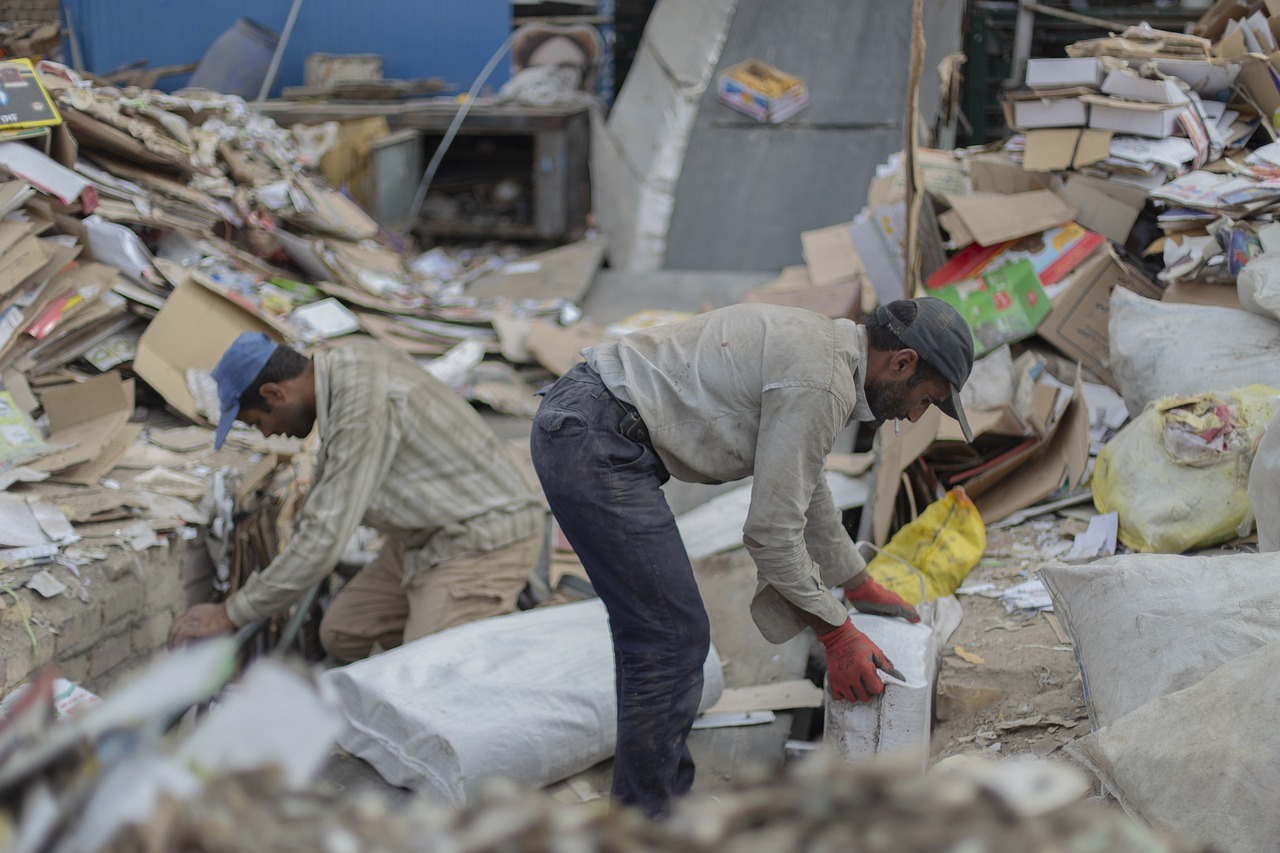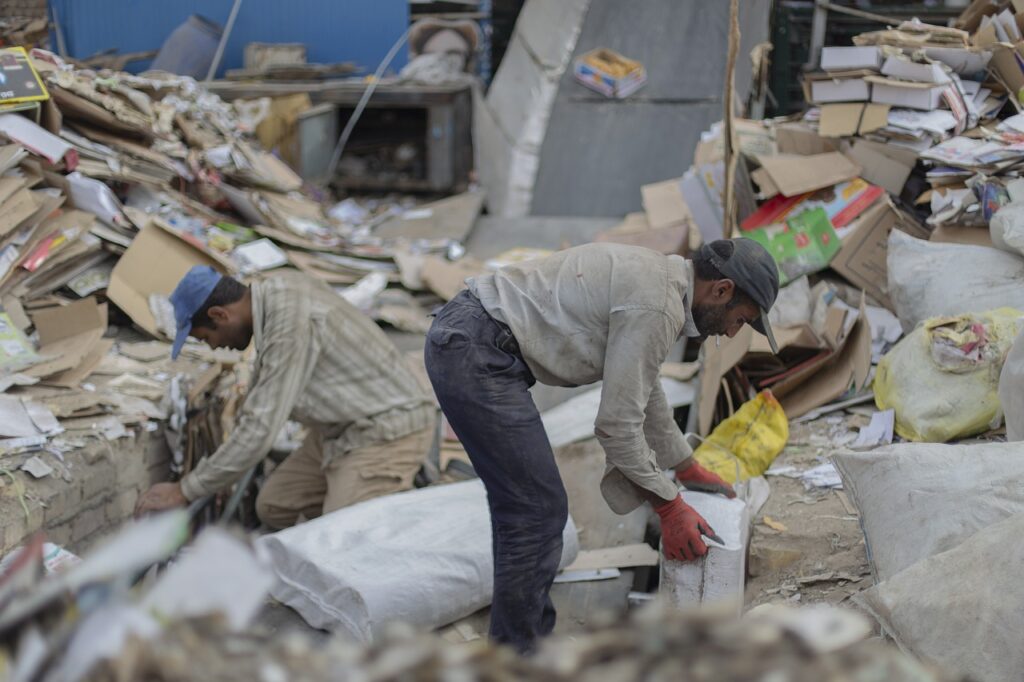
A Guide To Modern Construction Waste Management
Welcome to your guide on modern construction waste management.
In this article, we will provide you with essential insights and strategies to effectively handle construction waste, minimizing its impact on the environment while maximizing efficiency and cost savings.
Construction waste is a significant concern, accounting for a considerable portion of the world’s total waste. By understanding the impact of construction waste and implementing recycling and reusing practices, you can make a positive difference.
We will explore sustainable construction methods that prioritize eco-friendly materials and technologies, reducing waste generation from the start.
Additionally, we will delve into waste disposal and transportation management, ensuring responsible and efficient handling of construction waste.
By following our guide, you will not only contribute to a cleaner environment but also enhance your project’s overall efficiency and financial bottom line.
Get ready to revolutionize your construction waste management practices and embrace a more sustainable future.
Let’s get started!
Understanding Construction Waste and its Impact
You may think that construction waste is just a necessary evil, but understanding its impact can open your eyes to the importance of proper waste management in the industry.
Construction waste refers to any materials, debris, or byproducts generated during construction, renovation, or demolition projects. It includes everything from concrete, bricks, and wood to insulation, wiring, and plumbing fixtures.
The impact of construction waste is significant, both environmentally and economically. Improper disposal of construction waste can lead to pollution, habitat destruction, and health hazards. Additionally, it results in wasted resources and increased costs for both contractors and clients.
By implementing effective waste management strategies, such as recycling, reusing, and reducing waste, we can minimize the environmental impact and promote a more sustainable construction industry.
Implementing Recycling and Reusing Practices
Start by implementing recycling and reusing practices to maximize resource efficiency and minimize environmental impact.
Construction waste can be a valuable resource if managed properly. Recycling materials like concrete, wood, and metal reduces the need for new production, saving energy and reducing greenhouse gas emissions. Set up separate bins on-site to collect different types of waste, making it easier to sort and recycle.
Reusing materials is another effective practice. Salvaging items like doors, windows, and fixtures not only reduces waste but also saves money on new purchases. Consider donating usable materials to local organizations or selling them to contractors who specialize in reclaimed building materials.
By incorporating recycling and reusing practices into your construction projects, you can contribute to a more sustainable and eco-friendly industry.
Adopting Sustainable Construction Methods
Consider incorporating sustainable construction methods to not only reduce environmental impact, but also to create a lasting legacy of responsible building practices. By adopting these methods, you can significantly minimize construction waste and conserve resources.
One way to achieve this is by using eco-friendly materials, such as recycled or locally sourced materials. Additionally, implementing energy-efficient systems and designs can reduce the overall energy consumption of the building.
Another sustainable practice is to use modular construction methods, which not only minimize waste but also allow for easier disassembly and reuse of materials in the future. Furthermore, consider incorporating green spaces and utilizing natural lighting to improve the building’s overall sustainability.
By adopting these sustainable construction methods, you can contribute to a greener future and leave a positive impact on the environment.
Managing Waste Disposal and Transportation
Take control of waste disposal and transportation by implementing efficient strategies to minimize environmental impact and streamline the process.
When it comes to waste disposal, consider sorting and separating materials onsite to maximize recycling opportunities. This not only reduces landfill waste but also saves money on disposal fees.
Additionally, explore options for reusing or repurposing materials, such as donating excess building materials to local charities or organizations.
When it comes to transportation, plan routes carefully to minimize fuel consumption and emissions. Consider consolidating waste pickups to reduce the number of trips required.
Furthermore, explore alternative transportation methods, such as using electric or hybrid vehicles, to further reduce environmental impact.
By managing waste disposal and transportation effectively, you can contribute to a greener construction industry while also saving time and money.
Maximizing Efficiency and Cost Savings
Boost your bottom line and make your construction projects more eco-friendly by implementing strategies to maximize efficiency and save costs.
One effective way to achieve this is by adopting lean construction practices. This approach focuses on eliminating waste, reducing downtime, and optimizing resources. By carefully planning and coordinating tasks, you can minimize unnecessary movements and delays, ultimately saving time and money.
Another key strategy is to implement a waste management plan that emphasizes recycling and reusing materials whenever possible. This not only reduces landfill waste but also saves on procurement costs.
Additionally, consider using technology and equipment that improves productivity and reduces labor costs. For example, automated machinery can streamline processes and minimize the need for manual labor.

By implementing these strategies, you can maximize efficiency, reduce costs, and contribute to a more sustainable construction industry.
Conclusion
In conclusion, you now have a comprehensive guide to modern construction waste management. By understanding the impact of construction waste and implementing recycling and reusing practices, you can contribute to a more sustainable future.
Adopting sustainable construction methods and effectively managing waste disposal and transportation are also crucial steps. By maximizing efficiency and cost savings, you can not only reduce waste but also save money in the long run.
So, go ahead and put these strategies into action to make a positive difference in the construction industry.

Comments (0)